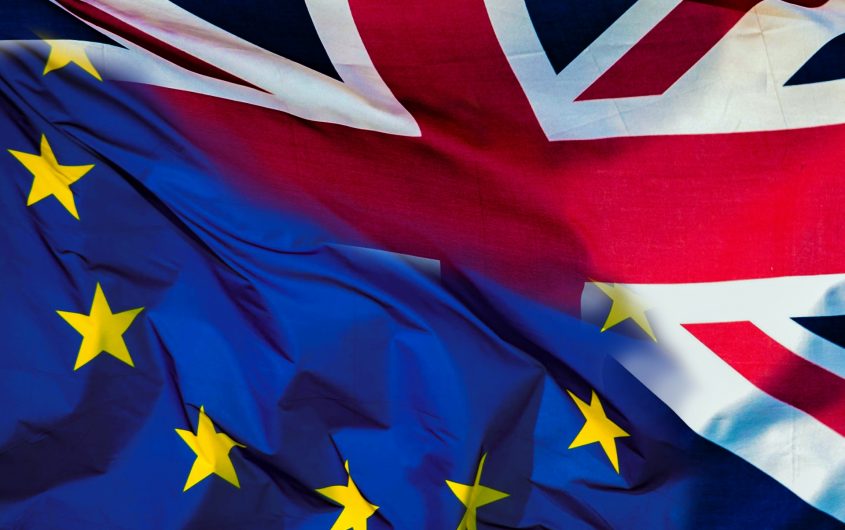
US-EU-UK Trade: Balancing the Three-Legged Stool

Marianne Schneider-Petsinger
Chatham House
Marianne Schneider-Petsinger is geoeconomics fellow in the US and Americas Programme at Chatham House, responsible for analysis at the nexus of political and economic issues. Before joining Chatham House, she managed the Transatlantic Consumer Dialogue – an international membership body representing consumer organizations in the EU and US. She also worked on transatlantic economic issues at the American Institute for Contemporary German Studies (AICGS) in Washington, DC and at the Ministry of Economic Affairs in the German state of Thuringia. Her research interest lies in the area of trade and transatlantic economic cooperation. Marianne completed her graduate studies focusing on international trade and finance at the Fletcher School of Law and Diplomacy (Tufts University) and the John F Kennedy School (Harvard University). She holds a BA in International Affairs and Economics from the University of Maine. Marianne is originally from Germany and spent almost ten years in the US. She is now based in London.
She is a 2016-2017 participant in AICGS’ project “A German-American Dialogue of the Next Generation: Global Responsibility, Joint Engagement,” sponsored by the Transatlantik-Programm der Bundesrepublik Deutschland aus Mitteln des European Recovery Program (ERP) des Bundesministeriums für Wirtschaft und Energie (BMWi).
Advance Bilateral Negotiations in US-EU-UK Trade Triangle
The renewed warnings by leading Democrats—including the presidential candidate Joe Biden—that securing congressional support for a UK-US free trade agreement is dependent on Brexit not imperiling the Good Friday Agreement have highlighted once again the interconnection between UK-EU and UK-US trade negotiations. Meanwhile, the U.S. and European Union are pursuing their own set of bilateral trade talks.
Much has been made of this triangular set of trade negotiations. A key question is whether the UK will have to choose between aligning more closely with the EU or US approach to regulation. Others have weighed in on whether Washington and Brussels use London as a pawn in their bilateral talks, or whether the UK could use the talks with the US to gain leverage in talks with the EU.
Regarding the first question, it is clear that there are major trade-offs involved for the UK because the US and EU regulatory approaches are vastly different on issues such as food safety and data protection. In terms of the second issue, it is less clear that progress in one set of negotiations actually creates any leverage in the parallel negotiations. All three sets of bilateral negotiations underway are stalling.
In part this can be explained by long-standing differences: in the UK-EU talks, the key sticking points are fisheries rules and ensuring a level playing field; in the transatlantic talks between the US-UK and US-EU, negotiators are hitting many of the same stumbling blocks that plagued the negotiations for the Transatlantic Trade and Investment Partnership (TTIP) under President Obama. The key US offensive and defensive interests in trade negotiations are relatively independent of who the president is, and Congress plays a critical role in developing and overseeing US trade policy. Once the outcome of the US election in November is known and with more clarity on the nature of the future UK-EU trade relationship, 2021 will be a critical year for the trilateral trade relationship.
Address Shared Global Trade Concerns
But simply focusing on the dynamics and interplay of their bilateral set of negotiations is not enough. The US, EU, and UK should consider the trade talks in the broader context of their economic and security objectives. Thus, the shared concerns and objectives for the global trade system are an important second leg of the transatlantic trade stool.
In particular, all three players share many of the concerns regarding China—including issues like intellectual property theft, forced technology transfer, and state-owned enterprises. The UK should be added to the existing initiative between the US, EU, and Japan to tackle market and trade distorting practices and policies (which take aim at China’s economic model and spill into efforts to reform the World Trade Organization).
Modernizing the WTO will remain a key priority, albeit a challenging one, for the US, EU, and UK. Potential areas for increased transatlantic collaboration include fixing the WTO’s dispute resolution system and modernizing trade rules in areas such as e-commerce and digital trade. The transatlantic partnership is a necessary, though not sufficient, condition for WTO reform. If Biden is elected as US president and once a new WTO Director-General is chosen, it should be easier for transatlantic collaboration to leave the current holding pattern on WTO reform.
In order to build momentum around updating the rules-based trading system, the US, EU, and UK can also play a critical role in driving forward plurilateral initiatives (meaning negotiations that cover a subset of the 164 WTO members and often focus on expanding trade rules into new areas for specific sectors). For instance, the US, EU, and UK have a strong interest in facilitating digital trade, and thus the three partners should continue efforts to reach an agreement on e-commerce. Negotiations were launched in January 2019 among 76 WTO members, but progress has been limited—not least because of transatlantic differences over privacy issues.
The US, EU, and UK should also join forces to revive other plurilateral trade negotiations—including the Trade in Services Agreement (TISA) and the Environmental Goods Agreement (EGA). For both agreements, negotiations have not taken place since the end of 2016. But with the increasing role of services in world trade and the urgent need to meet climate protection goals, agreements in these areas could be beneficial for the US, EU, and UK.
In light of the economic fallout from COVID-19, securing and strengthening the rules-based international trading system has become an even more important task. At the same time, the pandemic has highlighted the need to strengthen supply chain resilience. In this regard, the US, EU, and UK—alongside other like-minded trading partners—should consider strengthening transatlantic supply chains and greater regionalization. An alliance of trustworthy partners can help to reduce dependency on China for critical goods.
Remove Underlying Trade Friction
The third leg of the transatlantic trade stool should focus on removing—or at least managing—underlying trade tensions between the US, EU, and UK. Otherwise, the set of bilateral talks between the three parties and the joint initiatives regarding the global trading system risk being undermined.
Three areas of friction stand out as warranting particular attention: the US tariffs on steel and aluminum in the name of national security, as well as the EU’s countermeasures; the sixteen-year old dispute over aircraft subsidies; and the mounting tensions over digital services taxes.
The UK’s departure from the EU has brought additional complexities to managing these issues. For instance, in the on-going Boeing-Airbus dispute, how will Brexit impact the UK’s exposure to the US tariffs and to what extent will the UK benefit from the duties that the EU is allowed to impose on US products following the recent decision of the WTO arbitrator and after the transition period ends on December 31, 2020?
In June 2020, the US Trade Representative started an investigation into digital services taxes that have been adopted or are under consideration by a number of trade partners—including the EU and the UK—and which could lead to new tariffs. In order to prevent this turning into a flashpoint, the transatlantic partners should renew efforts to find a solution at the level of the Organisation for Economic Co-operation and Development (OECD). More broadly, a key question is whether digital trade can unite or will divide the transatlantic relationship. In this regard, it is also noteworthy that the EU-US trade talks don’t currently cover digital trade, whereas it is part of the UK-US negotiations.
The bottom line is that the US, UK, and EU should not only think of transatlantic trade policy as a three-legged stool focused on the relationships between the three partners, but that the stool needs to have three policy legs: advancing the bilateral negotiations, cooperating on joint global trade concerns, and removing underlying trade tensions. A missing leg would make the transatlantic trade stool wobbly.








